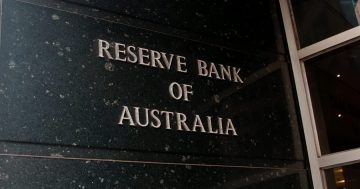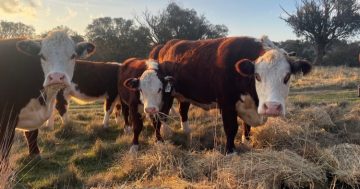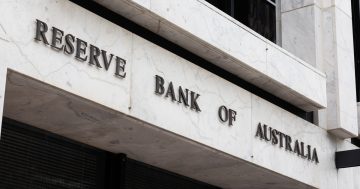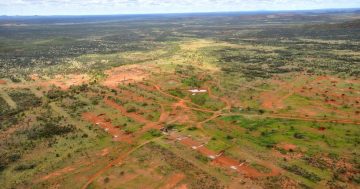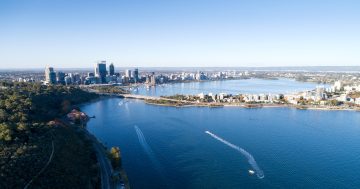Michael Kodari* offers up some investment predictions for the year ahead.
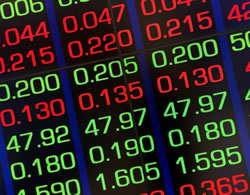 As the new year approaches, so do the ‘new year business resolutions’ — and if one of your goals is to start or improve on your investments, then here are some strategies and opportunities to unlock for 2022.
As the new year approaches, so do the ‘new year business resolutions’ — and if one of your goals is to start or improve on your investments, then here are some strategies and opportunities to unlock for 2022.
Recovery and recalibration
In considering smart investment strategies in 2022, a top level understanding of the Australian economic backdrop or ‘investor context’ is a good starting point.
Recovery in the Australian economy from the Delta outbreak is underway, according to the recent Statement on Monetary Policy issued by the Reserve Bank of Australia (RBA).
The RBA also sees conditions are ripe for sustained global economic recovery.
This is critical for Australia, given our dependence on exports to sustain economic growth.
The vaccination rollout has laid the groundwork for a bounce back in domestic demand, to the point where for the 2021/22 year-average, GDP growth is forecast to be 3.25 per cent and 5 per cent for 2022-23, the RBA states.
This is in sharp contrast to the contraction in economic activity in the September 2021 quarter, when NSW and Victoria faced hefty lockdowns.
Meanwhile the unemployment rate is forecast by the RBA to average just under 5 per cent for the December 2021 quarter, before tightening to around 4 per cent by December 2023.
Higher fuel prices and increases in housing construction costs pushed inflation higher in the September quarter, although the RBA does anticipate ‘underlying inflation’ will moderate to around 2.5 per cent by December 2023.
Pandemic predictions
The RBA has pointed out that there is still some uncertainty around these ‘central scenario’ forecasts, given COVID-19 is moving from its pandemic phase to the more ‘endemic’ chapter.
Higher vaccination rates may reduce COVID-related business uncertainty, boosting household confidence and supporting higher household consumption and stronger private investment.
This scenario comes with some glimmer of hope for less unemployment and a stronger labour market, pushing inflation above current forecasts.
On the other hand, there’s still a risk of the emergence of a new virus variant or the waning efficacy of vaccines, which could turn the tides towards a weaker economic trajectory.
This would depress consumer confidence, reducing household consumption as well as private investment.
It could also deflate changes of a travel resurgence, weaken services trade and increase unemployment.
If this is the 2022 scenario, then inflation could remain below 2 per cent over the ensuing two or three years.
Investment crystal ball
The current RBA Economic Outlook statement paints a relatively upbeat financial picture of the domestic economy.
The statement refers to a pretty solid pipeline of public and private projects, including public engineering work, a record number of residential commencements in the June quarter and robust non-mining business investment trending higher into 2022.
Meanwhile mining investment is forecast to increase slightly in the years ahead, as miners seek to sustain production at current high levels.
Public consumption, in the form of the National Disability Insurance Scheme and spending related to the ageing of the Australian population is increasing, while exports are expected to grow strongly over the next few years, as well as travel and education exports over 2022, as a result of the earlier-than-expected reopening of international borders.
Higher rural exports, because of strong global demand and ongoing favourable weather conditions, have lifted wool and crop production and faster-than-expected herd rebuild.
Wages growth is forecast to strengthen to 3 per cent by the end of 2023 — the fastest pace since 2013, as the unemployment rate approaches 4 per cent.
Furthermore, Governor Lowe stated in recent days that official interest rates are unlikely to rise in 2022 and the first increase may not be until 2024.
Australia’s investment ‘hot spots’
With all of this advice in mind, here’s a rundown of some of the best sectors and items to invest in for the year ahead.
1. Equity investments: the economic scenario outlined by the RBA is a positive setting for specific equity investments.
2. Healthcare services: the demand for healthcare services is driven by demographics and so ongoing government expenditure on the aging population is positive for Ramsay Healthcare.
3. Travel and education: if all goes well in terms of continued pandemic recovery, then travel and education exports are likely to increase over 2022, as international borders open earlier-than-expected.
IDP Education, as Australia’s largest provider of international student placement services, is a likely beneficiary of this outcome.
So too is Qantas, which is strategically positioned to benefit immediately the skyways re-open to international travel, for which considerable pent-up demand exists.
4. Residential: record residential commencements in recent months is supportive of Australia’s largest building and construction materials supplier, Boral.
The tightening labour market trend is likely to be reflected in higher numbers of job ads.
This is positive for the earnings outlook for Australia’s largest recruitment agency, SEEK.
5. Mining: the forecast of sustained global economic recovery is positive for Western Areas Limited, a nickel-focused base metal explorer and producer, owning a portfolio of operational and emerging nickel mines.
Rising global demand for stainless steel and the rapidly emerging market for electric vehicle batteries is tightening nickel demand globally.
Think big picture
Given the pandemic recovery and recalibration journey ahead, an investment strategy built around supportive macro-economic trends, combined with a focus on quality businesses, with conservative debt levels and proven management, paves the way for investment success.
If you have a clear understanding of the economic environment and sentiment for 2022 and invest in one or many of these points, next year should open exciting opportunities for investing.
*Michael Kodari is the chief executive officer at investment services provider Kodari Securities (KOSEC) and a prominent expert on the stock market.
This article first appeared at smartcompany.com.au.


